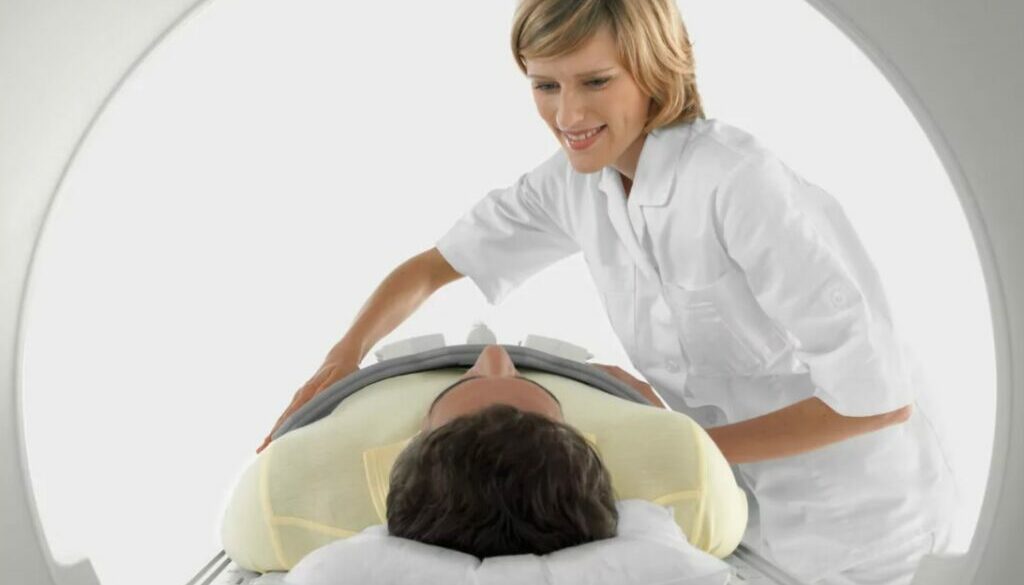A Step-by-Step Preparation Guide for Your Orthopedic MRI
If one of our orthopedic surgeons in Raleigh has told you that you need an MRI, the good news is that preparation is straightforward.
An orthopedic MRI is instrumental in allowing us to carefully examine all the details of joints, bones, cartilage, and tendons. This non-invasive test helps us tailor a customized treatment plan for you.
We’ll take a closer look at orthopedic MRIs, how to prepare, how an MRI works, and the benefits of our state-of-the-art open bore MRI.
Preparing for Your Orthopedic MRI
There’s very little you need to do to prepare for your orthopedic MRI. You’ll find that most of the preparation centers around having open and effective communication with your provider.
By adhering to the following tips, you’ll have a much more positive experience:
1. Have a Conversation With Your Orthopedic Surgeon
This will give you a good idea of what to expect. It will also give you the chance to ask questions—and we’re dedicated to taking the time to provide whatever information you need. We’ll also let you know why we feel an MRI is needed for your course of care.
2. Let Us Know If You Have Any Implanted Medical Devices
Some medical devices are certified as MRI-safe, and you must know if yours are before scheduling your MRI. Because the MRI utilizes a powerful magnet, having one of these devices means you may not be able to have an MRI.
These devices include:
- Any metallic joint prostheses
- Pacemakers
- Implanted devices such as heart defibrillators, drug infusion pumps, or nerve stimulators
- Artificial heart valves
- Any metallic pins, plates, stents, or screws
- An intrauterine device
Before you have an orthopedic MRI, you also need to let us know if you have any metal fragments in your body such as bullet fragments or shrapnel. If you have these, you may not be eligible for this imaging test.
3. Talk to Us if You Have Tattoos or Permanent Makeup
In certain cases, the darker inks contain metal. These might affect your MRI. Just talk to us and we’ll let you know if an orthopedic MRI is the right choice for you.
4. Let Us Know If You Think You’re Pregnant or Breastfeeding
Research has been ongoing on how magnetic fields affect fetuses. If you’re pregnant, speak to us about different types of imaging exams. While every case is different, in some instances, this may warrant postponing the MRI.
You should also let us know if you’re breastfeeding—particularly if you will receive a contrast during the procedure. A contrast is a temporary, chemical “dye” that enhances the quality of MRI images we receive.
5. Work With Us on a Comprehensive View of Any Health Problems
We take a comprehensive approach to your healthcare. That means we want to be familiar with your medical history.
If you have had issues or diseases that affect your liver or kidneys, we need to know. This may affect how we use it or if we limit the contrast.
6. Follow Our Instructions for Eating or Drinking Before the MRI
The good news is that there are rarely dietary restrictions before having an orthopedic MRI—meaning you can eat normally before your procedure. If we need you to follow any dietary restrictions, we will let you know before your imaging procedure.
7. Wear Something Comfortable on the Day of the Exam
While typically, you’ll be asked to change into a hospital gown, we do suggest wearing comfortable clothing. We also suggest that you not wear any makeup or cosmetics on the day of the procedure because some of these contain metal particles.
8. Avoid Wearing Anything Metallic
Because the MRI uses a powerful magnet to capture images, you must avoid wearing anything metallic. This includes:
- Any jewelry, including watches
- Hearing aids
- Glasses
- Wigs
- Dentures
- Hairpins
- Underwire bras
How Does an Orthopedic MRI Work?
Unlike an X-ray or CT scan that uses radiation, an MRI utilizes powerful magnets to capture detailed images that appear like “slices.” These slices are used to create a 3D rendering.
The MRI machines use magnetic fields that temporarily realign water molecules in your body, incorporating radio waves to produce signals, which in turn, form images.
What Is an Open Bore Orthopedic MRI?
Are you slightly claustrophobic? Maybe you simply get uneasy with the thought of being “inserted” into a tubular medical device.
That’s where our open bore MRI can make things more comfortable for you without sacrificing the high-resolution images we need to treat you. The first and only Open Bore MAGNETOM Verio 3T in Wake County, its larger opening can more easily accommodate patients of different sizes and help relieve the anxiety of those who are leery of small spaces.
In addition, our MRI utilizes Exclusive Tim ™ (total imaging matrix) technology, which enables us to conduct exams faster without losing quality—which means you can have diagnostic confidence.
The Raleigh Bone and Joint Clinic Has a Longstanding Tradition of State-of-the-Art Medicine Coupled With Compassionate Care
Orthopedic MRIs are useful imaging tools to help us reach a diagnosis and create a treatment plan tailored for you. We are the first and only orthopedic practice in Wake County to offer our cutting-edge Open Bore MRI technology.
Scheduling an appointment for your MRI is simple. Just call (919) 322-8619. Please check with your insurance provider, as some may require that you visit one of our physicians before your scan.
Discover how we’re bringing the best in orthopedic MRI technology to a convenient Raleigh location. Contact us to schedule an appointment.


